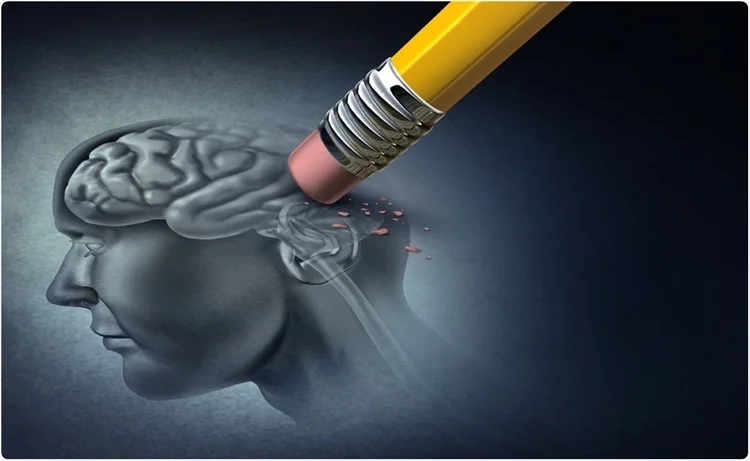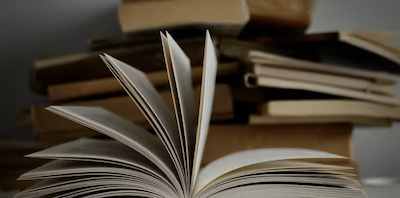 Throughout graduate school and even now, I’ve relied on Wikipedia as a valuable resource for quick information. My mentors and teachers have cautioned me against actually citing Wikipedia articles, but often these articles will show up as top searches on Google, and their listed references lead to published scientific articles so I could always go back to the original source and see the data and conclusions for myself. The fact that Wikipedia is free and freely edited makes it prone to fictionalization, which reminds us of the importance of corroborating whatever we read with third-party sources and our own experiences.
Throughout graduate school and even now, I’ve relied on Wikipedia as a valuable resource for quick information. My mentors and teachers have cautioned me against actually citing Wikipedia articles, but often these articles will show up as top searches on Google, and their listed references lead to published scientific articles so I could always go back to the original source and see the data and conclusions for myself. The fact that Wikipedia is free and freely edited makes it prone to fictionalization, which reminds us of the importance of corroborating whatever we read with third-party sources and our own experiences.
Unchecked Fraud
This was a bombshell of a story when it came out that a Chinese woman had faked hundreds of Wikipedia articles on Russian history. Shenanigans on Wikipedia are not unexpected, except that this latest hoax happened over the span of a decade. Because most Wikipedia articles are reliable sources (that lead to the actual sources that you should cite instead), it took that long for another user to dig in and uncover the falsified articles. Most of us don’t have the time or bandwidth to do this, and the lack of scrutiny by the masses is often what leads to disinformation becoming generally accepted. You may have seen this on social media, where snippets being shared are taken as gospel even if they don’t have any factual accuracy.
The possibility of fraud expands beyond Wikipedia, as we saw recently with the shocker that a major and widely accepted finding in Alzheimer’s research may have been faked. Unlike the Wikipedia scandal, which is comparatively tame compared to something that literally affects the quality of life, the scientific fraud with the Alzheimer’s data may have happened because few had the technical expertise or time to detect any potential fabrication (which is still under investigation at the time of this writing). Unfortunately, even highly intelligent and well-trained scientists are susceptible to fraud. There are gatekeepers through the various levels of reviewers and editors to minimize the risk of fraud, but some data distortions may still slip through the cracks.
The Truth About Lying
There are dire consequences to lying, especially if you are faking data and misrepresenting scientific research rather than just telling Aunt Sylvia you love her ugly sweater. Lying about science has major lasting effects to public trust in experts, the reputations of the accused and their associates, and the time and resources wasted potentially chasing the wrong leads. It is the last item that will most directly affect researchers actively working on important projects that affect human health and well-being. Especially if you are a graduate student hoping for a starting point for your project or a tenure-track scientist hoping to leverage data for a novel hypothesis for your next grant, ensuring that the data is valid will be key to your success.
Many institutions of higher learning and publications have procedures to sniff out academic fraud, such as at my alma mater. As noted above and reiterated below:
Academic fraud is a threat to the intellectual integrity on which the advancement of knowledge depends. Academic fraud can taint the reputation of the University and of its honest scholars and researchers. It can compromise the position of collaborators, subordinates, and supervisors. Fraudulent research can lead other investigators down fruitless paths of inquiry, at enormous costs to knowledge, morale, careers, time, and money. Its occurrence places great strains upon collegial interaction.
 It is important to note that not all “bad” data is the result of fraud, as some of it may be due to errors during the assembly of the data for publication, or a misinterpretation of the data to draw an erroneous conclusion. In this sense, the authors aren’t really “lying” more so than they’re just wrong. The open nature of scientific communication allows us to examine the published data for ourselves and to attempt to repeat the experiments to confirm the earlier conclusions. Between the institutional referees acting as the first defense against academic fraud, to reviewers ensuring that the data is sound and matches the stated conclusions, to future investigators continuing to test the data, the system in place is usually enough to lend credence to what has been published.
It is important to note that not all “bad” data is the result of fraud, as some of it may be due to errors during the assembly of the data for publication, or a misinterpretation of the data to draw an erroneous conclusion. In this sense, the authors aren’t really “lying” more so than they’re just wrong. The open nature of scientific communication allows us to examine the published data for ourselves and to attempt to repeat the experiments to confirm the earlier conclusions. Between the institutional referees acting as the first defense against academic fraud, to reviewers ensuring that the data is sound and matches the stated conclusions, to future investigators continuing to test the data, the system in place is usually enough to lend credence to what has been published.
See For Yourself
The pressure to produce quickly and in quantity might tempt one to take shortcuts or become careless, but for those in the majority who value scientific integrity, it still makes sense to thoroughly investigate the data in the existing literature. Typically, mistakes that are found may lead to retractions of the original article, whether due to experimental or analytical errors. Others may need a mere correction because of a typo or an omitted figure that bridges the gap observed by readers. While it is true that some errors may lead to fortuitous discoveries, like when Sir Alexander Fleming got the Nobel Prize for accidentally discovering penicillin, what we want to strive toward is reducing the number of errors and preserving the faith in our data.
 It does take an immense amount of time and energy to become an expert in your chosen field, from reading everything you can get your hands on to learn about what has been done, to keeping up with fellow scientists, to generating your own piece of the overall puzzle. The skills you learned (or will learn) in your doctoral program will allow you to design a well-controlled experiment, and from there, know how to dissect other researchers’ experiments to determine if they have any flaws. This is obviously necessary when a new claim is contradictory to everything you (and the rest of science) have previously learned. Did they include the appropriate controls? Was the chosen technique the best one to support their conclusion? Does the logic make sense given the data presented? And for goodness’ sake, did they avoid using Comic Sans?
It does take an immense amount of time and energy to become an expert in your chosen field, from reading everything you can get your hands on to learn about what has been done, to keeping up with fellow scientists, to generating your own piece of the overall puzzle. The skills you learned (or will learn) in your doctoral program will allow you to design a well-controlled experiment, and from there, know how to dissect other researchers’ experiments to determine if they have any flaws. This is obviously necessary when a new claim is contradictory to everything you (and the rest of science) have previously learned. Did they include the appropriate controls? Was the chosen technique the best one to support their conclusion? Does the logic make sense given the data presented? And for goodness’ sake, did they avoid using Comic Sans?
With time and experience, you will be able to spot any discrepancies in the data that might invalidate a claim. The object is not to discredit your fellow scientists, but to ensure that the claims are logical because the data was generated honorably and represented faithfully. Scientists are some of the most talented and intelligent people in the world, and it is good to know there are those out there who are attempting to fight back against misinformation, but all humans make mistakes (deliberately or otherwise). While it is generally true that a consensus by the majority of the scientific community usually lends credence to a hypothesis or theory (hello, global climate change!), it is up to us as individuals to regard every new discovery with excitement but with a healthy dose of constructive skepticism until the hypothesis has been retested to satisfaction by independent parties. That’s what science is all about!




-2.jpg)